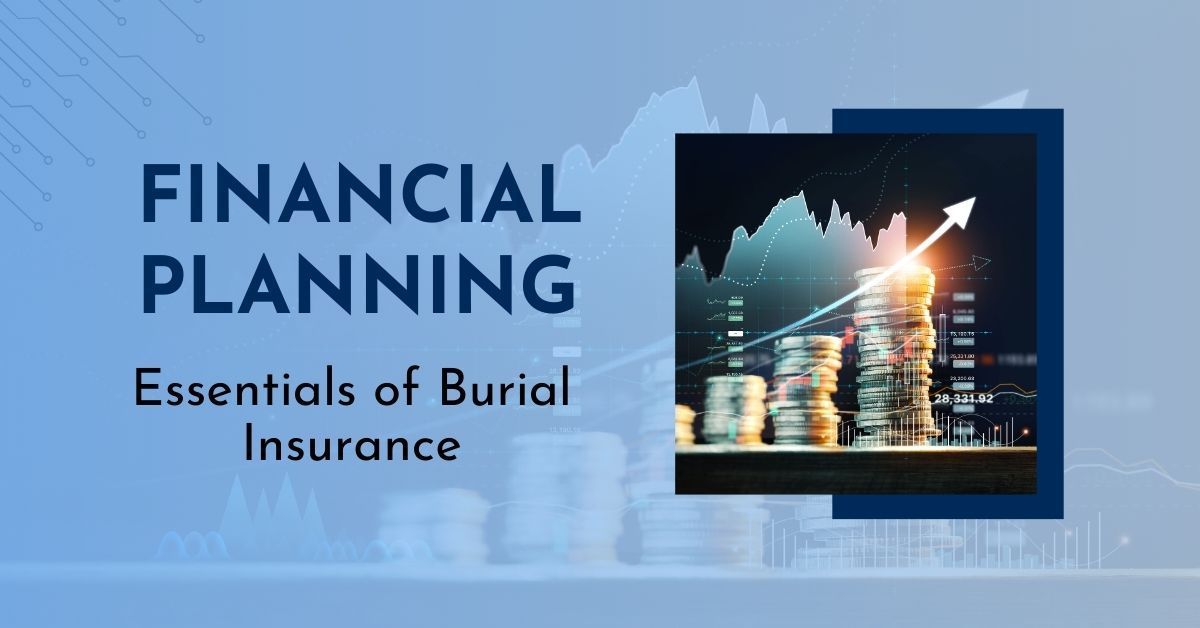Estate Planning for Seniors: How a Financial Advisor Can Simplify the Process

Did you know that only 26% of Americans have an estate plan? Despite its benefits, estate planning is a topic that many people shy away from.
For many seniors and elderly parents, estate planning can be an overwhelming process. It involves estate planning documents, tax issues, and decisions about who will handle your affairs.

If you’ve avoided estate planning because you’re not sure where to begin, this blog can help you. Fortunately, financial advisors are experienced in simplifying the estate planning process. Using one is like having a personal guide throughout the journey.
Do you want to craft an estate plan tailored to your needs? Or perhaps you need insights into tax planning and protecting your financial assets? A financial advisor like Leonard Financial Solutions can answer your questions and help you through each step.
With the help of a financial advisor, you can make informed decisions that align with your goals and values.
Ready to navigate the process of estate planning for seniors? This comprehensive guide will explore what you need to know to get started.
Key Takeaways
- Seniors often find estate planning overwhelming due to its complexities.
- Financial advisors simplify the estate planning process for seniors.
- Wills and trusts are key components of any estate plan.
- Regular updates keep your plan current and effective.
- Effective communication of final wishes can prevent inheritance disputes.
The Basics of Estate Planning Process

Estate planning is all about distributing your assets and managing your financial affairs after you pass away. It’s a way to ensure your wishes are honored and your family members are well taken care of. Key components include wills, trusts, powers of attorney, and healthcare directives.
What Makes up an Estate?
An estate is everything you own, including any land and real estate, cash, bank accounts, vehicles, and other assets. It is the total of your assets less all debts.
Your estate does not include shared assets, pensions, or life insurance policies with a specific beneficiary.
The Role of Wills and Trusts
Wills and trusts are essential components of an estate plan. Both help ensure your end-of-life wishes are carried out, but they serve different purposes.
A will outlines how your assets will be distributed and can appoint guardians for minor children. It also ensures your property goes to the people you choose.
If you're looking for a flexible option, wills are easy to create and modify. You can update them as your circumstances change. Wills also give you complete control over how your estate assets are distributed.
However, wills must go through probate. This is a court-supervised process to validate the will and divide a person's estate.
On the other hand, trusts usually bypass the probate process. This allows for a quicker and more private distribution.
The process involves a legal arrangement where the trustee holds and manages assets on behalf of a beneficiary.
There are several types of trusts. One example is a revocable living trust, which can be altered during your lifetime.
Another type is a living trust, which allows you to transfer property while you’re alive but continue to use it. Upon your passing, the assets are distributed without probate.
So - Which one is better?
Your decision depends on your personal circumstances and goals.
If you want a simple way to ensure your assets are distributed according to your wishes and don't mind the probate process, a will might suffice.
If you prefer privacy and reduce tax burden, a trust might be the better option. Consulting with a financial advisor or a professional estate planner can help you make the best choice for your situation.
Common Estate Planning Documents
Estate planning involves many legal documents. These include wills, powers of attorney, and healthcare directives.
Creating a living will is an important part of estate planning, as it outlines end-of-life care wishes if you're unable to communicate them.
This ensures all medical decisions reflect your preferences. Financial advisors assist in drafting these documents and integrating them into your overall estate plan.
In case you’re unable to make decisions on medical or financial matters, a power of attorney (POA) is what you need. It’s a legal authorization that grants an agent authority to act on behalf of the principal.
A power of attorney is enforceable in all states and will stay valid until they are revoked or the principal dies.
Additionally, the durable power of attorney remains effective even if you become incapacitated. These documents ensure your wishes are honored and help avoid legal disputes among family members.
If you’re confused about the process, a financial advisor can help you appoint the right individuals and ensure all legal requirements are met. Aside from financial advisors, an estate attorney can guide you on allocating retirement accounts, designating beneficiaries, and determining restrictions on distributions from the account.
Tax Planning and Asset Protection

Your estate plan should be tax-efficient and protected from risks to preserve your assets. Consider consulting with a tax advisor to ensure that all federal estate taxes, estate and inheritance taxes, and any other applicable taxes are considered in your estate plan.
Follow these proper estate planning tips on minimizing tax burdens and safeguarding your legacy.
Familiarize Yourself With Tax Implications
Estate taxes can take a big chunk out of what you leave behind. A financial advisor and estate planning attorney can help you with strategies to minimize these taxes.
For example, annual gifting allows you to give money to your heirs without incurring gift taxes. For 2024, the annual gift tax exclusion is $18,000. This means the Internal Revenue Service (IRS) allows you to give up to $18,000 per recipient without triggering gift taxes.
Charitable giving is another way to lower estate taxes. Donating to charities not only helps those in need but also gives you tax deductions.
For instance, setting up a charitable remainder trust can offer continued income and reduce estate taxes.
If you’re a surviving spouse, you might qualify for an estate tax marital deduction. This allows you to inherit an unlimited amount of assets from your spouse without incurring estate and gift taxes.
With marital deduction, more wealth is passed on to the next generation. This strategy provides financial flexibility and allows the surviving spouse to maintain their standard of living without the immediate tax burden.
However, keep in mind that marital deduction only defers the estate and gift taxes. The tax burden will eventually apply when the surviving spouse passes.
Protect Assets from Creditors
As much as possible, we all want to protect our hard-earned assets. Crafting a comprehensive estate plan allows you to keep your assets safe from creditors, lawsuits, or even bankruptcy. Seeking assistance from estate planning attorneys can help resolve legal issues related to estate planning, wills, trusts, and other financial documents.
First, you need to create irrevocable trusts. These trusts remove assets from your ownership, making them inaccessible to creditors. By placing assets in an irrevocable trust, you ensure your estate remains intact for your beneficiaries and family members.
Another strategy is to consider a family limited partnership (FLP). This legal structure is intended for family members who want to pool their assets into a single entity.
In an FLP, family members become limited partners, sharing the estate without exposing it to individual liabilities. Personal creditors won’t be able to seize the entity’s assets.
It also allows you to control assets and make the redistribution of wealth easier. Another advantage of FLPs is they maximize annual tax exclusions and estate tax exemptions.
Here’s a simple guide on how to establish an FLP:
- Set up the family limited partnership (FLP) and provide its entity name.
- Create a partnership agreement and name the general and limited partners.
- Transfer assets to the FLP, which may include cash, properties, and other valuable assets.
- Transfer shares to yourself and other family members.
Avoid the Probate Process
Probate court can be a long and costly process. By using revocable living trusts, you can ensure a quicker distribution of assets to your heirs.
Compared to wills, trusts can bypass probate and outline how assets should be managed if you become incapacitated. These trusts can also specify guardians for minor children while providing tax advantages.
Imagine you've got an irrevocable trust set up. Each year, you can put in a certain amount without worrying about gift taxes. For 2023, that's $17,000, and it goes up to $18,000 in 2024. Any assets in these trusts are usually safe from estate taxes.
Implementing and Updating Your Estate Plan

Creating and maintaining an estate plan involves several steps, from drafting initial documents to regularly updating them as life changes. Clear communication with your family ensures your wishes are understood and respected.
Estate Planning Checklist and Timeline
Start with a comprehensive checklist to organize your estate planning process. Here's a sample estate planning checklist to guide you:
- List all your assets and debts,
- Gather all documents related to your estate, like marriage certificates, insurance policies, property deeds, and vehicle titles.
- Choose your power of attorney and estate administrator.
- Draft all your estate planning documents like a will, living trust, and beneficiary designation forms.
- Talk with your family about your estate plans.
- Regularly review your plans to ensure they reflect your current wishes.
Estate Plan Revisions
As your life evolves, so should your estate plan. Major life events such as marriage, divorce, or the death of a spouse necessitate updates to your documents.
For instance, a marriage might require adding your new spouse as a beneficiary. On the other hand, a divorce might mean removing a spouse from your existing plans.
Don't forget to update documents when you move to a new state since state laws can affect your estate. Keeping your plan current helps manage estate planning costs and provides peace of mind knowing your wishes are legally protected.
Communicating Final Wishes to Family Members
During probate, inheritance disputes often arise between siblings or other family members. Communicating your final wishes effectively helps prevent this from happening.
We suggest that you hold regular family meetings to discuss your estate plan and the reasoning behind your decisions. By doing this, you ensure everyone is on the same page and aware of their responsibilities.
Moreover, put your final wishes in writing and cover everything from asset distribution to funeral arrangements. Sharing this information with your family in advance can create a smoother transition and avoid family disputes over your estate.
Frequently Asked Questions on Estate Planning
Estate planning for seniors can feel overwhelming. The good news is working with a financial advisor can make things a lot simpler. This section answers some frequently asked questions you may have:
What is the role of a financial advisor in estate planning for seniors?
A financial advisor helps you get your estate in order. They make sure your assets go where you want them to after you’re gone. They work with attorneys and accountants to create a comprehensive estate plan. Whether you have questions about wills or charitable donations, you can always turn to a reliable financial advisor.
How can a financial advisor help with reducing estate taxes?
Financial advisors have a few tricks to minimize federal estate tax They might suggest setting up certain types of trusts or gifting assets to your heirs while you are still alive. These strategies can reduce the taxable value of your overall estate.
What should seniors consider when creating a will with a financial advisor’s help?
When creating a will, think about who will inherit your assets. Since it involves your personal possessions, a financial advisor can help ensure your will is legally binding.
How do financial advisors assist seniors with trust planning and administration?
Financial advisors are usually trained and experienced to:
Help you set up and manage trusts to protect your assets.
Guide you on the best kind of trust for your needs, such as a living trust.
Ensure your assets are handled according to your wishes through proper trust administration.
What strategies do financial advisors recommend to protect assets for heirs?
The most common strategies include setting up trusts, purchasing a life insurance policy, and creating gifting plans. Do you plan on reducing the size of your taxable estate? You could gift a certain amount to heirs each year to lessen the tax burden on your family members.
Can a financial advisor help transfer wealth to future generations?
Absolutely, advisors help ensure your wealth is smoothly passed down to future generations. To do this, they coordinate with your heirs to explain their inheritance and any responsibilities. Additionally, they might recommend educational resources or workshops to help your heirs manage their newfound assets effectively.
Let's Preserve Your Legacy Together
At Leonard Financial Solutions, we make estate planning less stressful. We'll break down the process into manageable steps so you won't feel overwhelmed. Book a no-cost consultation today to get started!
Get a Free Consultation
At Leonard Financial Solutions, we're committed to making your financial planning straightforward and stress-free.
Contact us today to see how we can help you save time and money while securing your future.










